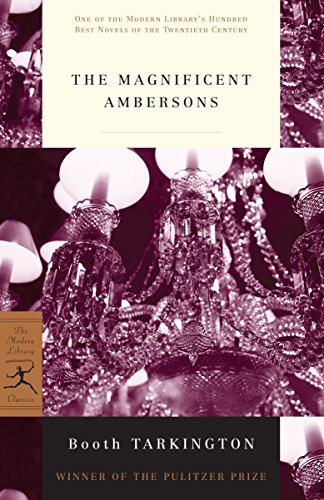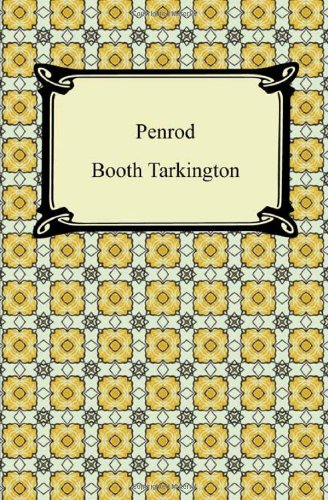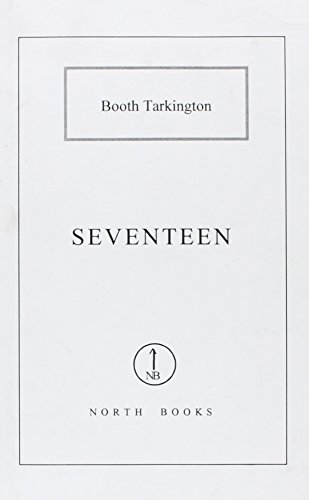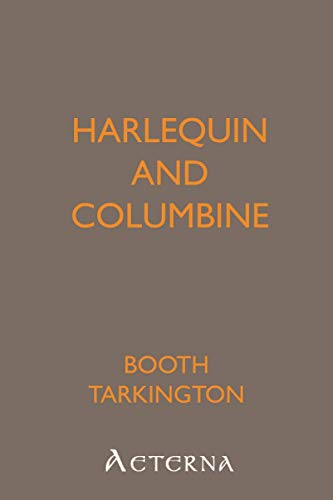Booth Tarkington
Alice Adams
language
( Dec. 18, 2019)
Alice Adams is a 1921 novel by Booth Tarkington that received the 1922 Pulitzer Prize for the Novel. It was adapted as a film in 1923 by Rowland V. Lee and more famously in 1935 by George Stevens. The narrative centers on the character of a young woman (the eponymous Alice Adams) who aspires to climb the social ladder and win the affections of a wealthy young man named Arthur Russell. The story is set in a lower-middle-class household in an unnamed town in the Midwest shortly after World War I.
The novel begins with Virgil Adams confined to bed with an unnamed illness. There is tension between Virgil and his wife over how he should go about recovering, and she pressures him not to return to work for J.A. Lamb once he is well. Alice, their daughter, attempts to keep peace in the family (with mixed results) and then walks to her friend Mildred Palmer's house to see what Mildred will wear to a dance that evening.
After Alice's return, she spends the day preparing for the dance, going to pick violets for a bouquet because she cannot afford to buy flowers for herself. Her brother Walter initially refuses to accompany her to the dance, but because Alice cannot go without an escort, Mrs. Adams prevails upon Walter, and he rents a Tin Lizzie to drive Alice to the dance.
Walter's attitude towards the upper class is one of obvious disdain—he would rather spend his time gambling with the African-American servants in the cloakroom than be in the ballroom at the dance. Alice forces him to dance with her at first because it will be a grave embarrassment for her to stand alone, but Walter eventually abandons her. Alice tries to give the impression that she is not standing by herself, and then dances with Frank Dowling (whose attentions she does not welcome) and Arthur Russell (a rich newcomer to town who is rumored to be engaged to Mildred), who she believes danced with her out of pity and at Mildred's request. She leaves the dance horribly embarrassed after Arthur discovers Walter's gambling with the servants.
The next day, Alice goes on an errand for her father into town, passing Frincke's Business College on the way with a shudder (as she sees it as a place that drags promising young ladies down to "hideous obscurity"). On the walk back home, she encounters Arthur Russell, who shows an obvious interest in her. As she assumes he is all but spoken for, she doesn't know how to handle the conversation. She warns him not to believe the things girls like Mildred will say about her, and she tells a number of lies to obscure her family's humble economic status.
Arthur returns, several days later, and his courtship of Alice continues. All seems well between them until he mentions a dance being thrown by the young Miss Henrietta Lamb; Arthur wants to escort Alice to the dance, and she lies to cover for the fact that she is not invited to the event. Mrs. Adams uses Alice's distress to finally goad Virgil into setting up a glue factory (which she has long insisted would be the family's ticket to success). It is eventually revealed that the glue recipe was developed by Virgil and another man under the direction and in the employ of J.A. Lamb, who over the years declined to take up its production despite repeated prodding from Virgil. Although initially reluctant to "steal" from Mr. Lamb, Virgil finally persuades himself that his improvements to the recipe over the years has made it his.
The novel begins with Virgil Adams confined to bed with an unnamed illness. There is tension between Virgil and his wife over how he should go about recovering, and she pressures him not to return to work for J.A. Lamb once he is well. Alice, their daughter, attempts to keep peace in the family (with mixed results) and then walks to her friend Mildred Palmer's house to see what Mildred will wear to a dance that evening.
After Alice's return, she spends the day preparing for the dance, going to pick violets for a bouquet because she cannot afford to buy flowers for herself. Her brother Walter initially refuses to accompany her to the dance, but because Alice cannot go without an escort, Mrs. Adams prevails upon Walter, and he rents a Tin Lizzie to drive Alice to the dance.
Walter's attitude towards the upper class is one of obvious disdain—he would rather spend his time gambling with the African-American servants in the cloakroom than be in the ballroom at the dance. Alice forces him to dance with her at first because it will be a grave embarrassment for her to stand alone, but Walter eventually abandons her. Alice tries to give the impression that she is not standing by herself, and then dances with Frank Dowling (whose attentions she does not welcome) and Arthur Russell (a rich newcomer to town who is rumored to be engaged to Mildred), who she believes danced with her out of pity and at Mildred's request. She leaves the dance horribly embarrassed after Arthur discovers Walter's gambling with the servants.
The next day, Alice goes on an errand for her father into town, passing Frincke's Business College on the way with a shudder (as she sees it as a place that drags promising young ladies down to "hideous obscurity"). On the walk back home, she encounters Arthur Russell, who shows an obvious interest in her. As she assumes he is all but spoken for, she doesn't know how to handle the conversation. She warns him not to believe the things girls like Mildred will say about her, and she tells a number of lies to obscure her family's humble economic status.
Arthur returns, several days later, and his courtship of Alice continues. All seems well between them until he mentions a dance being thrown by the young Miss Henrietta Lamb; Arthur wants to escort Alice to the dance, and she lies to cover for the fact that she is not invited to the event. Mrs. Adams uses Alice's distress to finally goad Virgil into setting up a glue factory (which she has long insisted would be the family's ticket to success). It is eventually revealed that the glue recipe was developed by Virgil and another man under the direction and in the employ of J.A. Lamb, who over the years declined to take up its production despite repeated prodding from Virgil. Although initially reluctant to "steal" from Mr. Lamb, Virgil finally persuades himself that his improvements to the recipe over the years has made it his.
Enjoy reading Alice Adams? You may also like these books
-
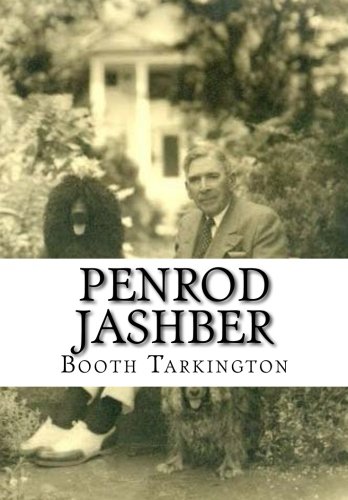
Booth Tarkington
Penrod Jashber
Paperback (CreateSpace Independent Publishing Platform Jan. 20, 2016) -
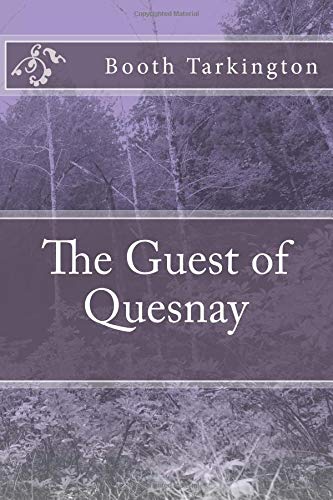
Booth Tarkington
The Guest of Quesnay
Paperback (CreateSpace Independent Publishing Platform Sept. 8, 2018) -
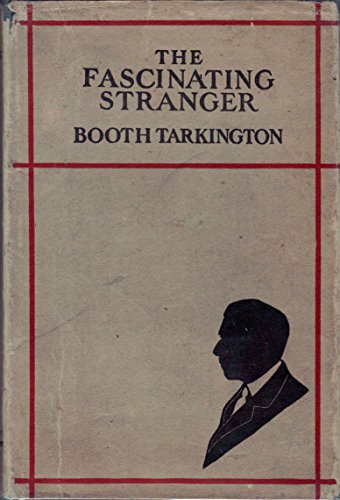
Booth Tarkington
The Fascinating Stranger and Other Stories
Hardcover (Doubleday, Page and Company July 6, 1923) -
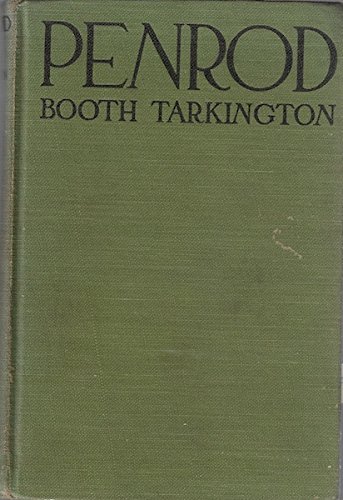
Booth Tarkington
PENROD - FIRST THUS ILLUSTRATED BY GORDON GRANT IN VERY GOOD CONDITION
Hardcover (Grosset & Dunlap March 15, 1914)

